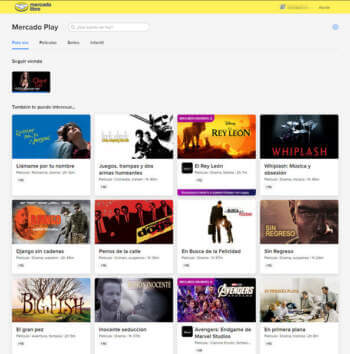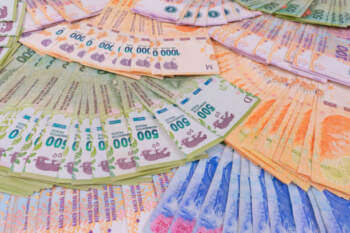I’ve written about Argentina’s crisis economy on numerous occasions as far back as 2015 and here we are again, eight years later, with the country on the brink of yet another financial disaster, similar in proportions to the meltdown of 2001, or possibly worse. If you’ve ever heard the expression, ‘The light at the end of the tunnel may be another train…’, that pretty much sums up life in this country.
First, Some Good News!
Contactless payments
Since DCT is primarily a tech blog, I think it’s only fair that I share some of the consumer advances that have been made in Argentina, much of it driven by the pandemic we all wish to forget. In my 2019 article Argentina Hasn’t Grasped Easy Payment Methods, I ranted about contactless payments being a scarce method to pay for goods and services. But now all that has changed and I find myself paying for goods and scanning QR codes with my phone at least 75% of the time. For a start, it’s more secure than using a card – let’s not forget that when you hand over the plastic, the employee gets access to every number printed on it – and it’s certainly more hygienic. The local Amazon equivalent, known as Mercadolibre, is the leading contactless payment method and it’s now accepted in most outlets.
Streaming
Paying for digital services such as Netflix and others are charged in US dollars and therefore attract a heinous 95% tax. However, Mercadolibre has done a deal with several streaming services such as HBO and Paramount where we buy the streaming packages from Mercadolibre at a fraction of the first-world market prices and without the crippling taxes. Unfortunately, Netflix is not included in the deal, but I was able to add Amazon Prime through my ISP for less than a dollar per month and the quality of all these streaming services is first class, with some even streaming in 4K. As they say in Spanish, no hay mal que por bien no venga – every cloud has a silver lining. Oh, and I should mention that Mercadolibre has just launched its own streaming service which is free of charge to account holders!
The Blue Market
In Argentina, the de facto hard currency is the US dollar, in spite of government denial. It’s the currency used in house, car, and other major transactions, not to mention commercial imports and exports. As a result of hideous government exchange controls, the black market money changing system, known euphemistically as the Blue Market, is where the real market value of the US dollar is because the government’s policy of political denial pegs the peso at an artificially high rate at half the Blue rate. What this means in effect is that if you have a tidy stash of dollars under the bed or you receive a regular income in greenbacks, you can live a very comfortable life in Argentina by selling those notes on the Blue market. On the other hand, we all end up watching the daily collapse of the peso – it’s now worth 50% less than it was six months ago – with mixed feelings.
A Shock Election Result!
On Sunday we voted in the primary elections where party candidates are elected and it’s open to all eligible voters, as opposed to other countries where primaries are limited to party members. When the government finally released the count, we were shocked to find that a complete outsider, a libertarian, had taken over 30% of the votes, pushing the incumbent government candidate into third place. With a general election coming up in October, this sent the markets into freefall, the peso has fallen by around 45% and prices in the shops are beginning to skyrocket, fueling an already dangerous level of inflation of 120%.
To say that living in Argentina is a rollercoaster would be a massive understatement.
—




